Achim Haug | AirGradient
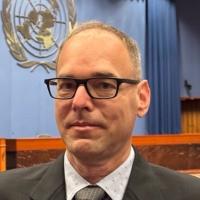
I founded AirGradient which started as a volunteer project to help a school in Northern Thailand monitor the air quality in classrooms during the highly polluted “burning season”. From the start, we worked with students and educators to not only increase awareness in the area of air quality by building monitors but also in understanding the health impacts of air pollution, and the positive changes that can be made to reducing air pollution.
So from the beginning we put a strong focus on open designs, robust and long-lasting hardware and a strong desire to support people from all around the world with affordable and effective air quality solutions. We believe companies like ours need to act responsible and work towards a healthier and more sustainable environment. As a result joined the 1% for the Planet movement where we pledge to donate 1% of our sales to organizations protecting our planet.
AirGradient is currently the only global air quality monitoring company that makes all its hardware design available for free under a Creative Commons CC-BY-SA license. This means that all electronic schematics, firmware code, CAD files are openly available and we allow (and encourage) other organizations to use them. We also openly publish all our research and algorithms so that others can benefit from the extensive research we are doing.
We live in a world on the brink of climate collapse which will lead to more and more hazardous air-pollution through increased wildfires and heat waves. We want to enable -especially disadvantaged countries and communities- to get access to reliable air quality information by offering affordable air quality monitors on a large scale. Our community of people operating AirGradient indoor and outdoor monitors already consists of thousands in more than 70 countries. They all share the belief that air quality monitoring should be affordable, open and accessible.
Anil Namdeo | Northumbria University, UK
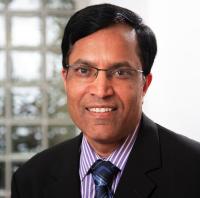
Anil is a Professor of Air Quality Management, a Chartered Environmentalist and a Chartered Scientist. He a Fellow of the Royal Meteorological Society (FRMetS) and a Fellow of the Institute of Air Quality Management.
He is a member of the Civil Aviation Authority’s Environmental Sustainability Panel, and an ad-hoc member of Defra’s Air Quality Expert Group (AQEG). He was a member of the NICE (National Institute for Health and Care Excellence) Public Health Advisory Committee deveping guideline (NG70) on Air Pollution: Outdoor Air Quality and Health). He is involved in the activities of the US Transportation Research Board’s Committee on Transportation and Air Quality (ADC20).
His research bridges the gap between engineering, social science and public health. His research covers the monitoring, modelling and management aspects of air quality. His research focusses on air quality and health with special emphasis on personal exposure of population to air pollution. He is interested in environmental justice with a focus on understanding the links between land use, transportation, air quality, social deprivation and health. His recent work focuses on climate change (adaptation and mitigation) with particular emphasis on net-zero policies, strategies and practices.
He has worked extensively in Africa, Asia, Europe and South America through academic collaborations and funded research projects.
Asim Jaffry | Fair Finance Pakistan
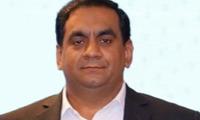
I lead the country program Fair Finance Pakistan, member of Fair Finance Asia and Fair Finance International, Oxfam's flagship programs operating in over 25 countries in Asia, Latin America, America and Europe.
Fair Finance Pakistan seeks to strengthen the commitment of financial institutions in
Pakistan to social, environmental, and human rights standards; and urges to respect and enhance the social and environmental well-being of local communities and to integrate ESG criteria in their business operations. In this role, I advocate for sustainable finance backed by scientific evidence to leverage learning for commercial banks/financial institutions to adopt the ESG criteria in line with the UN Guiding Principles for Responsible Banking in their respective businesses and operations at the strategic, portfolio and transaction level. I campaign and leverage knowledge for banks to align their business policies and practices with the vision society has set out for its future in the Sustainable Development Goals and the Paris Climate Agreement.
My work on inequality and policy reforms on taxation, climate and energy regulations led to advisory positions in the Tax Reforms Commission of Pakistan in 2015 and the Committee of Economic Growth Strategy of Punjab province. My work on Business and Human Rights is recognized by the government of Pakistan (Functional Committee of Human Rights, Senate of Pakistan). I pioneered the development of the National Action Plan on Business and Human Rights which stands approved by the Government of Pakistan in 2021. Pakistan is the first South Asian country to have the Plan aimed at preventing human rights violations resulting from business activity.
I received LLM in International Human Rights and majored in Business & Human Rights Law from the National University of Ireland, Galway in 2008.
My work examines the economic effects of climate change from a variety of perspectives ranging from lending practices of commercial banks on ESG and how it affects the day-to-day lives of vulnerable communities, impacts labour productivity etc. From policy perspective, I assess issues involved in the design and regulation of energy markets, nature, environment, air pollution, and sustainable finance in Pakistan. I closely assess the design of government policies on taxes and government spending i.e. fair and equitable taxation nexus welfare policy and protect, respect, and remedy in the purview of business and human rights.
Carlo Bontia | Clean Air Asia

Carlo is a Senior Researcher for Clean Air Asia's Air Quality and Climate Change Science Team. He is primarily in charge of data management, visualization, and other aspects of digital transformation in emissions-, air pollution-, and geospatial data in the implementation of clean air solutions. He provides technical leadership in focus areas in the nexus of air quality such as climate change and disaster risk reduction and management. Carlo has worked with several cities in establishing and operationalizing their air quality monitoring systems to help them make informed decisions. His work also involves developing and maintaining strong professional relationships with key Clean Air Asia partners and stakeholders and undertaking research and analysis of air quality levels in the region and related air quality management indicators.
Emil Varghese | Center for Study of Science, Technology, and Policy
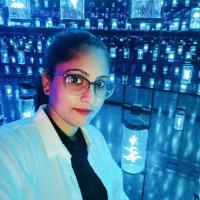
I am an early career researcher with a diverse background spanning air quality monitoring and bioaerosols. Currently, I serve as the Principal Investigator (PI) of a project focused on high-resolution mapping of particulate and gaseous pollutants through a hybrid air quality monitoring network at one of India’s leading policymaking think tanks. Simultaneously, I am completing my doctoral research on bioaerosols, investigating their role in climate and ecosystem health interactions over the Indian tropical region.
Throughout my doctoral research, I have been actively involved in microplastic identification and characterization projects and in designing aerosol measurement campaigns in high-altitude and marine environments. Currently, I am playing a pivotal role in operating the India Sensor Evaluation and Training (Indi-SET) Center in Bengaluru, where we manage a Continuous Ambient Air Quality Monitoring Station (CAAQMS) and evaluate the performance of air sensors from multiple manufacturers. Our efforts also include developing advanced data management protocols and correction models utilizing machine learning algorithms to ensure the quality of air sensor data.
Everlyn Tamayo | Clean Air Asia

As Air Quality and Climate Change Science Lead of Clean Air Asia, Everlyn leads in keeping track of regional trends and developments relevant to air quality and climate change, including identification of emerging new areas of focus for Clean Air Asia’s impact initiatives. She leads a team of specialists and researchers in helping governments achieve air quality improvement and emission reduction targets through science-based policy and decision making that are institutionalized through Clean Air and Climate Action Plans. In the past decade, Ever has worked on several air quality monitoring campaigns using both reference and non-reference instruments. She continuously works with Asian governments and partners on hybrid air quality monitoring and air quality data management towards data-driven solutions.
Garima Raheja | Columbia University
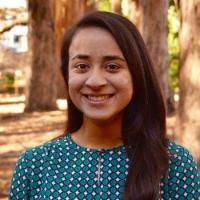
Hi! I'm a PhD candidate at Columbia University in New York City, where I work on air pollution, community science, and international climate policy. I'm in the Westervelt Aerosol Group and previously worked on decarbonization at the White House, earth observations using satellites and fighter jets at NASA, living on a NOAA ship, and leading an environmental strategy consulting org in Berkeley. I sit on the BAAQMD Advisory Council, and I'm an AGU Community Science Fellow, Data for Progress Fellow, Lead Teaching Fellow at Columbia, and a State Department Air Quality Fellow. Recently, I was honored with the Women in Science Incentive Prize. I graduated with degrees in Data Science and Civil/Environmental Engineering from UC Berkeley. When I'm not doing science, you can find me watching musical theatre on Broadway or picking up a new sport every few months.
Jim McQuaid | University of Leeds

Jim McQuaid has been involved in atmospheric observations for over 25 years, using both ground-based sites and a number of different research aircraft. His work has crossed a diverse range of scientific questions including mechanisms that control atmospheric mineral dust in the Sahara, how measurements of ice nucleating particles can improve quantitative physical understanding of cloud responses to a warming climate, and the impact of long-range transport of aerosols on surface biology and albedo of the Greenland Icesheet. More recently he has started working with low cost sensors used to determine ambient PM2.5 and has developed observational networks across West Yorkshire, working with the Born in Bradford cohort study and Leeds City Council. This work includes working with primary schools and engagement with local communities. He has established the largest network of low-cost sensors in the UK outside of London. He is part of a team that deployed a network of over 100 sensors to measure the levels of particulate pollution from peatland fires in Central Kalimantan (Indonesia).
Kayla Schulte | Imperial College London

Dr. Kayla Schulte is a Postdoctoral Research Associate in the Environmental Research Group with a background in environmental social theory, participatory research, and social data science. Her research broadly explores how knowledge about local air quality is co-produced in society.
Kayla's research draws on sociological, human geography, and Science, Technology and Society (STS) theory to explore engagement with emerging mobile app, sensors and other digitally enabled sources of real-time air quality information. Her research interests include: who uses real-time air quality information systems, what motivates this use, whether exposures to air pollution are effectively reduced, and which portions of a population are most likely to experience such benefits. Methodologically she specialises in participatory approaches to research, and how to blend quantitative and quantitative data to support more equitable air quality governance. Kayla is PI for a Defra-funded air quality project in Barking and Dagenham. She also supports the Community Programme dimension of the Breathe London project.
Prior to joining ERG, Kayla held positions with the U.S. government (U.S. EPA) and worked on multi-stakeholder environmental research and management projects funded by Defra, BEIS, the Met Office, NERC, UKRI and ESRC, NSF, USGS and state departments of environmental protection in the USA. Kayla also serves as an advisor for local government authority projects trialling participatory air quality management methodology, specifically involving low-cost air sensor technology and new sources of digital data.
Kayla completed her doctoral research at the University of Oxford in Sociology at the Leverhulme Centre for Demographic Science in 2022. She holds MSc in Geography from the University of Oxford and a BA in Environmental Studies from Franklin & Marshall College.
Nguyen Thi Kim Oanh | Asian Institute of Technology
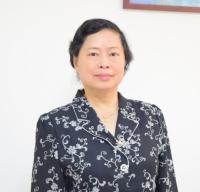
Prof. Kim Oanh is the Distinguished Professor of the Environmental Engineering and Management Program at the Asian Institute of Technology (AIT), Thailand. She is also the founding Director of Center for Nexus of Air Quality, Health, Ecosystem, and Climate at AIT. She has over 35 years of working experience in research, education, consultancy, and capacity building and is internationally recognized for her work on air pollution and climate in Asia with a focus on Southeast Asia. She spends untiring efforts to provide a better characterization of air pollution issues in Asian developing countries through field measurements, emission inventory, and modeling studies at urban, national, and regional scales. She has published 2 books (ed.), 130+ international peer-reviewed scientific papers, 45+ book chapters, and 60+ important development reports. With her extensive experience and professional networking capacity she has conducted, as PI or Co-PI, 60+ regional collaboration research projects. She also organized, co-organized, and served as a key resource person for 200+ training courses in air quality and climate related topics. Under her supervision as the advisor, as of 2024, there are 145 Master’s and 16 Ph D AIT graduates who are now working in Asia and beyond. Professor Kim Oanh has taken sabbaticals at the University of Washington in Seattle and University of Illinois at Urbana Champaign, USA (2004), and the Institute for Advanced Sustainability Studies, Germany (2012).
Saumya Singh | Indian Institute of Forest Management
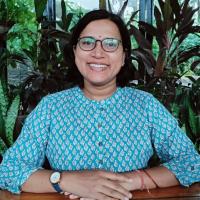
Dr. Saumya Singh is an Assistant Professor in Ecosystem and Environment Management at the Indian Institute of Forest Management (IIFM) Bhopal, India. With over a decade of experience, her research focuses extensively on the sources and processes of air pollution, particularly reactive nitrogen compounds such as ammonia. Dr. Singh is especially interested in the interconnections between agriculture and air quality. Her current work involves understanding the sources and processes driving rural and urban air pollution in India, utilizing a range of lower-cost instrumentation to gather critical data and insights.
Sebastian Diez | Universidad del Desarrollo
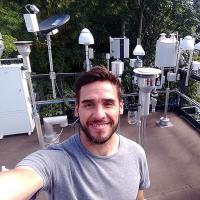
As a dedicated Scientific Researcher at Universidad del Desarrollo and a Visiting Researcher at the University of York, I've honed my expertise in atmospheric pollution and air quality measurement. My work focuses on developing innovative instruments for air quality assessment, leveraging skills in emission modeling and environmental analytics.
Within our teams, we've advanced the field through rigorous scientific research and practical applications. My dual role in academia and industry underscores a commitment to environmental stewardship and a passion for technological transfer. Our goal is to inform policy decisions and contribute to healthier communities, guided by evidence-based strategies and collaborative efforts.
Shih-Chun Candice Lung | Center for Sustainability Science, Academia Sinica
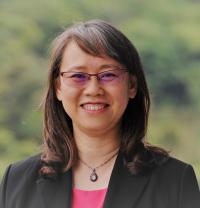
Chair / Health Investigation and Air Sensing for Asian Pollution (Hi-ASAP)
Dr. Shih-Chun Candice Lung is a Research Fellow and Deputy Director of the Research Center for Environmental Changes as well as the Deputy Executive Secretary of the Center for Sustainability Science in Academia Sinica. Her research includes air quality and health, health impacts of climate change, and health adaptation. Currently, she is an advisory group member of the Future Earth Health KAN. She is also the chair of the Science Steering Committee of the Hi-ASAP, an Asian regional Future Earth activity.
Shriram Manogaran | Clean Air Fund

Shriram comes with the experience of working on national and international campaigns and research to policy experience in climate change and environmental impacts. He has worked on climate-smart agriculture research and modelling, air pollution campaigns, climate and healthcare research and implementation.
His recent experience includes building national action plans for climate change mitigation for healthcare facilities in India and managing a public health and climate change program for better air quality and environmental health. He has had opportunities to collaborate and work alongside institutions like Harvard University, World Health Organization, and International Rice Research Institute.
Shriram holds a Master’s degree in Sustainable Environmental Resource Management from the University of Malta, and a Bachelor of Engineering in Computer Science from Anna University, India.
To Thi Hien | Vietnam National University Ho Chi Minh City
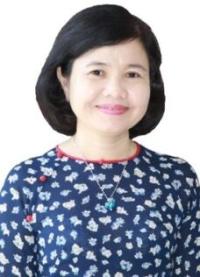
To Thi Hien is currently an Associate Professor at the Faculty of Environment, University of Science, Vietnam National University Ho Chi Minh City (VNUHCM-US). Dr Hien obtained her PhD in Atmospheric Chemistry from Osaka Prefecture University, Japan in 2007. Currently, her research interests focus on sources, fate and behaviour of contaminants in the environment as well as their effects on human health. She is a leader of the Air pollution and human health research group in the Faculty of Environment. She has carried out research projects on indoor and outdoor toxic pollutants such as PAHs, nitro-PAHs, PCDD/Fs and dioxin-like PCBs, bisphenol A, aldehydes, pesticides, radon, VOCs/OVOCs and criteria pollutants (Ozone, CO, Nox, OC/EC and heavy metals in fine and coarse particles). In terms of research cooperation, she has extensive experience in collaborating with both local and overseas universities and organizations. She has been a member of IGAC-MANGO (International Global Atmospheric Chemistry Monsoon Asia and Oceania Networking Group) since 2015. Her research works have played an important role in research and training at her university. Currently, her research group is one of the pioneer groups in the field of Atmospheric Chemistry in Ho Chi Minh City and in the southern areas of Vietnam.
Vasu Kilaru | US EPA
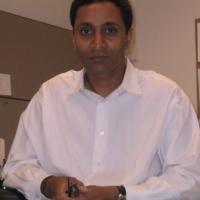
Vasu Kilaru is a physical scientist at the US EPA’s Center for Public Health and Environmental Assessment. His expertise is in Geographic Information Systems, Spatial Analysis, and satellite remote sensing particularly with respect to trying to detect ground-level fine particles using space borne instruments. He has also worked in the air sensors domain for the last 15 years, working particularly in data standards and community infrastructure needs.
Victoria Owusu | Afri-Set
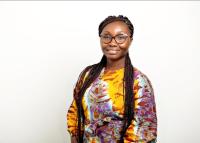
Victoria is a dedicated climate scientist and PhD candidate in Meteorology and Climate Science at Kwame Nkrumah University of Science and Technology (KNUST), Ghana. Her research focuses on evaluating air quality models and developing bias-correction tools for forecasting air quality in Ghana, with a broader aim of advancing evidence-based solutions to air pollution. With experience as an analyst at the Clean Air Fund and a passion for empowering communities, Victoria leads innovative projects such as implementing low-cost environmental sensing tools in schools. She is an advocate for climate action, combining technical expertise with strategic collaboration to drive impactful change in Sub-Saharan Africa.
Agus Salim | Indonesian Institute of Sciences (LIPI), Indonesia
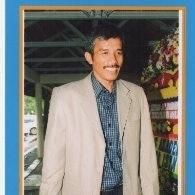
Agus Salim is a researcher currently affiliated with the Research Center for Chemistry at the Indonesian Institute of Sciences (LIPI) in Indonesia, focusing on chemical research within the institute.
Institution: Research Center for Chemistry, Indonesian Institute of Sciences (LIPI)
Field of Expertise: Chemistry research
Daniel Westervelt | Lamont-Doherty Earth Observatory
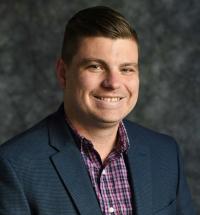
2025 ASIC Southeast Asia Technical Planning Committee Continuity Chair
Dr. Daniel M. Westervelt is an Associate Research Professor at Lamont-Doherty Earth Observatory (LDEO). Dr. Westervelt is also an affiliate faculty member of the Columbia University Data Science Institute, an affiliated scientist with NASA Goddard Institute for Space Studies, and an air pollution advisor to the US State Department. He is also a Columbia University Climate and Life Fellow. He is also an affiliate professor at Université Mohammed VI Polytechnique in Benguerir, Morocco. His current research spans from air quality and climate modeling to deployment and calibration of low cost sensors for air quality. Prior to his faculty position at Lamont-Doherty Earth Observatory, he worked as an Associate Research Scientist at LDEO, and as a Science, Technology, and Environmental Policy (STEP) postdoctoral research associate at Princeton University. He completed his PhD degree in May 2013 in Civil and Environmental Engineering from Carnegie Mellon University. LINK TO MY CV
R (Subu) Subramanian | Center for Study of Science, Technology and Policy
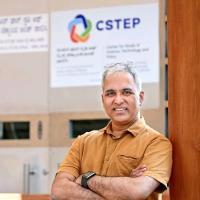
I study the impact of energy-related emissions of particulate matter (PM) and gases on air quality and climate using traditional methods, cutting-edge tools, and innovative solutions.
I am now a Senior Scientist leading the new air sensors group at the Qatar Environment and Energy Research Institute (Qatar Foundation/HBKU). Our focus areas include air quality and climate-warming methane. I hope to hire a postdoctoral researcher soon - contact me if interested.
Over 2015-2018, I led a CMU team collaborating with SenSevere (a private company) on the development of the Real-time, Affordable, Multi-Pollutant (RAMP) monitor for hyperlocal and low-cost air quality monitoring. I also worked with local NGOs and city/township leaders on deployment and use of the RAMPs by local communities especially in environmental justice areas. This work was funded by the US EPA (I led a $750,000 STAR grant).
A significant new component of the low-cost air monitoring program is AfriqAir, a hybrid urban network of reference monitors and low-cost sensors in multiple cities across Africa. This work is partly funded by the French ANR through a MOPGA grant for the "Make Air Quality Great Again" project (2018-2022). African scientists/early career researchers wanting to get involved - feel free to contact me!
I have also studied soot emissions from combustion sources and measured methane and other pollutants emitted from oil & natural gas facilities.
